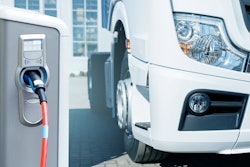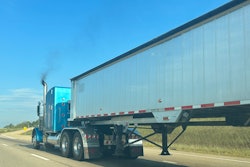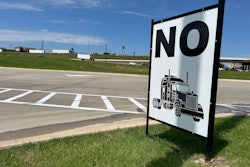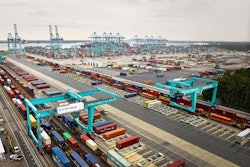The state of California has withdrawn its remaining outstanding request for waivers that would have allowed the state to enact emissions limits that exceed federal standards as the sun sets on President Joe Biden's administration, which had been an ally in the state's fight for some of the world's most stringent air quality regulations.
Had a Biden-led White House granted those requests, as it had others, the expectation was that they would be revoked under President-elect Donald Trump, who will be sworn into office Monday. Lee Zeldin, Trump's nominee to lead the Environmental Protection Agency (EPA), had previously pledged to prioritize efforts to "roll back regulations" that he sees impeding American business.
"While we are disappointed that U.S. EPA was unable to act on all the requests in time, the withdrawal is an important step given the uncertainty presented by the incoming administration that previously attacked California’s programs to protect public health and the climate and has said will continue to oppose those programs," California Air Resources Board Chair Liane Randolph told CCJ via emailed statement.
California in November 2023 submitted its Advanced Clean Fleets (ACF) request to the EPA, which would have required trucking fleets in the state to transition to zero-emission vehicles beginning last year, and that the entire fleet be fully zero-emissions between 2035 and 2042, depending on a variety of factors. ACF also required all new heavy trucks sold in California be zero-emissions by 2036.
“The trucking industry and American consumers can breathe a collective sigh of relief today after CARB finally bowed to reality and shelved its job-killing Advanced Clean Fleets regulation," said American Trucking Associations President and CEO Chris Spear said via statement sent to CCJ. "This unachievable mandate would have raised costs and caused disruption throughout our supply chain without delivering the promised environmental benefits."
Eric Sauer, CEO of the California Trucking Association added his agency has consistently stated the Advanced Clean Fleets Rule was unachievable and looks forward "to engaging all stakeholders, including CARB and EPA, to continue the trucking industry's efforts to further reduce emissions in a technologically feasible and cost-effective manner that preserves our State and the Nation's critical supply chain."
Without the waiver, ACF never really got off the ground. CARB agreed not to enforce the reporting or registration requirements of the ACF in 2024 as it applied to high priority fleets and drayage until a waiver determination was issued by EPA, instead allowing fleets to voluntarily report and apply for flexibility provisions.
CARB’s ACF rule had been under fire from the trucking industry and other groups, including the California Trucking Association, Western States Trucking Association, the American Free Enterprise Chamber of Commerce, and a coalition of 17 states and the Nebraska Trucking Association.
“We welcome this update and look forward to working with the new administration on commonsense environmental policies that allow small business truckers to remain viable and not forced out of business in the regulatory juggernaut," Todd Spencer, President of Owner-Operator Independent Drivers Association (OOIDA) told CCJ.
What's next?
California had requested eight waivers from the Biden EPA, of which four were fully approved and two partially approved. One of the partial approvals requires manufacturers of Transport Refrigeration Units (TRUs)/reefers to use low Global Warming Potential (GWP) refrigerants for all new TRUs, and sets new and lower PM requirements. That was short of what the state requested: to convert at least 15% of a truck TRU fleet (defined as truck TRUs operating in California) to zero-emission technology each year (for seven years), and require all truck TRUs operating in California be zero-emission by December 31, 2029.
EPA in December approved California to implement its “Omnibus” Low-NOx Regulation for heavy-duty trucks, which CARB adopted back in 2020. The Omnibus Low-NOx reg slashes NOx and particulate matter (PM) emissions standards and included new requirements for test procedures, regulatory useful life, and emissions warranties. The rule built upon the EPA's own heavy-duty NOx regulation finalized in 2022 for model year 2027 and beyond.
These rules and others like them will face scrutiny under a Trump-led White House.
“We look forward to President-elect Trump rescinding CARB’s remaining unworkable waivers and new leadership at EPA restoring a common-sense approach that balances environmental progress with economic viability," Spear added. "The American Trucking Associations will continue to advocate for rational, nationwide emissions standards that are both ambitious and achievable.”
Randolph said CARB is assessing its option to continue its progress as part of its commitment to move forward the important work of improving the state’s air quality and reducing harmful pollutants that contribute to poor health outcomes and worsen climate change. The waivers and authorizations recently approved, along with other existing programs, she said, will advance essential emissions reductions in key sectors as the state assess next steps.
"It's clear that the public health, air quality, and climate challenges that California faces require urgent action," Randolph said. "We are ready and committed to continuing the important work of building a clean air future."










